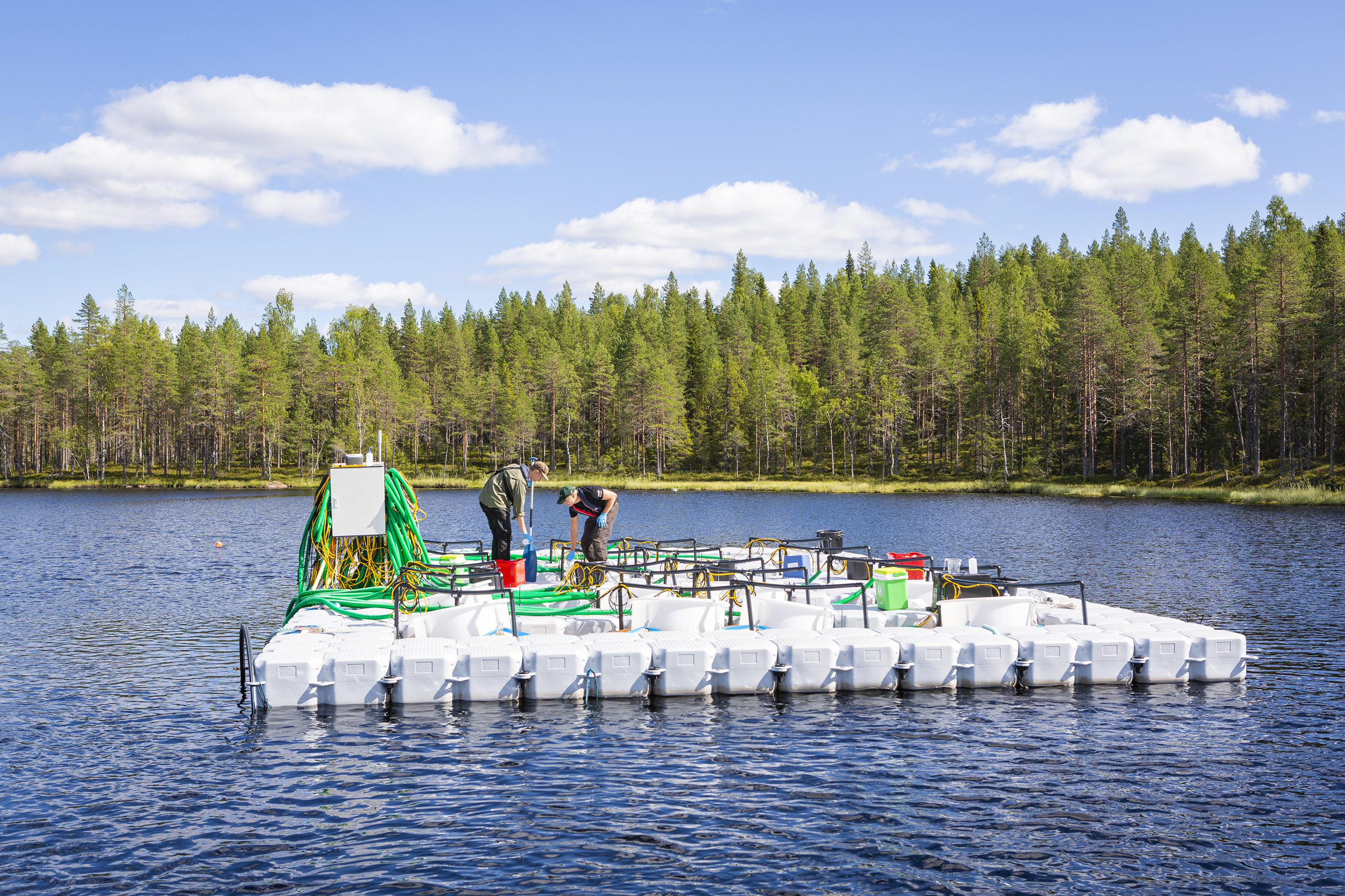In 2018 researchers from Sweden and Germany used the SITES AquaNET mesocosm infrastructure to participate in a global mesocosm experiment on salinization led by scientists from the University of Toledo in the US and Queen's University in Canada. The overall aim of the project was to study how the increasing salt concentration in lakes observed in many parts of the world resulting from human activities (e.g. road deicing, mining, agriculture) and increasing droughts and water scarcity affect life in freshwater ecosystems. In the project, mesocosm experiments were implemented in 16 locations in North America and Europe, including 3 SITES AquaNet lakes (Erken, Feresjön, and Stortjärn) where a salinity gradient was manipulated and the effects on plankton communities studied.

This week results of the global experiment were published in PNAS showing that zooplankton communities are in many cases sensitive to salinity concentrations below the thresholds set by current water quality guidelines used in North America and the EU. These guidelines are meant to protect freshwater organisms, but the thresholds appear to be too high to keep all trophic levels safe from salinization. The loss of zooplankton triggered a cascading effect causing an increase in phytoplankton biomass at almost half of the study sites. Higher phytoplankton biomass has the potential to alter lake ecosystems services, namely providing high-quality drinking water, recreational opportunities, and productive fisheries. The experimental results demonstrate that new thresholds need to be considered at local and regional scales to protect freshwater organisms from the harmful impacts of salinization.
You can find the publication here: Current water quality guidelines across North America and Europe do not protect lakes from salinization
and a second paper from the Global Salt Initiative here: Lake salinization drives consistent losses of zooplankton abundance and diversity across coordinated mesocosm experiments
and the swedish press release here:
Salta eller inte salta mot halka - en fråga om miljöpåverkan